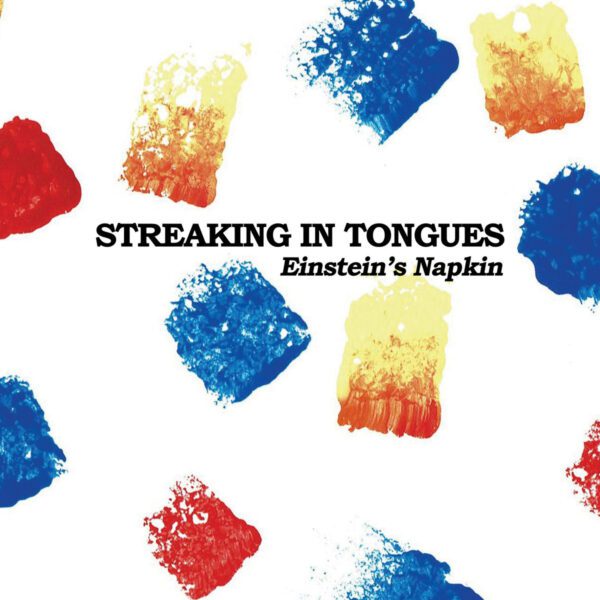
Streaking in Tongues’ Einstein’s Napkin is unlike any instrumental collection you’ll hear in 2024. Michigan’s Ronnie and Elliott Ferguson are a father and son duo, respectively, who have crafted fifteen deceptively ambitious tunes that only rarely break the three-minute mark. The concision of their ideas and musical motifs is surprising given the potpourri of influences they draw from. There’s minimalist jazz, indie rock, folk, and prog strands threaded through the condensed tapestry of each song without succumbing to the pretentiousness often befalling similar efforts.
The one standout quality above all that grounds these compositions in a concrete reality is their near-uniform adherence to melody. These are never free-floating hodgepodges without rhyme or reason. There are examples of Streaking in Tongues venturing out on musical limbs during these fifteen performances. However, they are never far removed from the listener’s musical experience. “Lumbering Along Bluff Creek” is a great example. The sharply defined melody at the heart of this tune and the accompanying keyboards nevertheless seem to exist in a vacuum. It inhabits an unique musical landscape shaped by bare-bones ideals rather than laboring under the weight of pseudo-virtuosity.
Yet it achieves something unique. Inspired by Michigan poet Marty Achatz, renowned for exploring a sense of place in his work, the instrumentals written for Einstein’s Napkin share the condensed structure of written verse. “Love and Need” is the album’s shortest performance at a little less than 90 seconds long and embraces eloquent poetic clarity. “The Grief of the Answer” shares similar sensibilities despite being more expansive than the aforementioned number. Adding Patrick Booth’s restrained yet expressive saxophone and subtle percussive touches flesh out the song further. It’s one of the collection’s most distinctive moments.
BANDCAMP: streakingintongues.bandcamp.com/album/einsteins-napkin
Booth’s saxophone introduction to “God’s Eyelashes” preludes one of the most progressive moments on Einstein’s Napkin. The music seemingly wafts by listeners, though the accompanying percussion provides ballast for the arrangement. Jazz influences are dominant during Einstein’s Napkin, and “God’s Eyelashes” seamlessly melds the duo’s proggy inclinations with minimalist jazz trappings. “A Black Hole with Legs” blends progressive tendencies with a dark indie rock vibe. The song’s central musical motif exerts a powerful hold on listeners that holds your attention. It has a moody demeanor that’s difficult to shake.
The clean guitar playing during “Between Breath and Beyond” has an angular melodic charm, and keyboards supply crucial early colors for the arrangement. Patrick Booth’s entrance into the arrangement adds another layer to the album’s longest track, clocking in at an epic three minutes and fifteen seconds, and the song’s structure stands out. There’s a great deal of thought underlying each of these compositions. Tasteful percussion punctuates the contrast guitar chords, and cascading melodic runs are scattered throughout “May Your Scat Be Soft”. This penultimate song emphasizes the intimacy that’s a hallmark of the release without risking obscurity.
Streaking in Tongues’ Einstein’s Napkin defies easy categorization. Commonplace labels need not apply for this release. Ronnie and Elliott Ferguson, as well as key collaborator Patrick Booth, have crafted a collection that pours old wine into new bottles with distinctive skill and an individualistic aesthetic quite unlike anything else in music today.
Clay Burton
